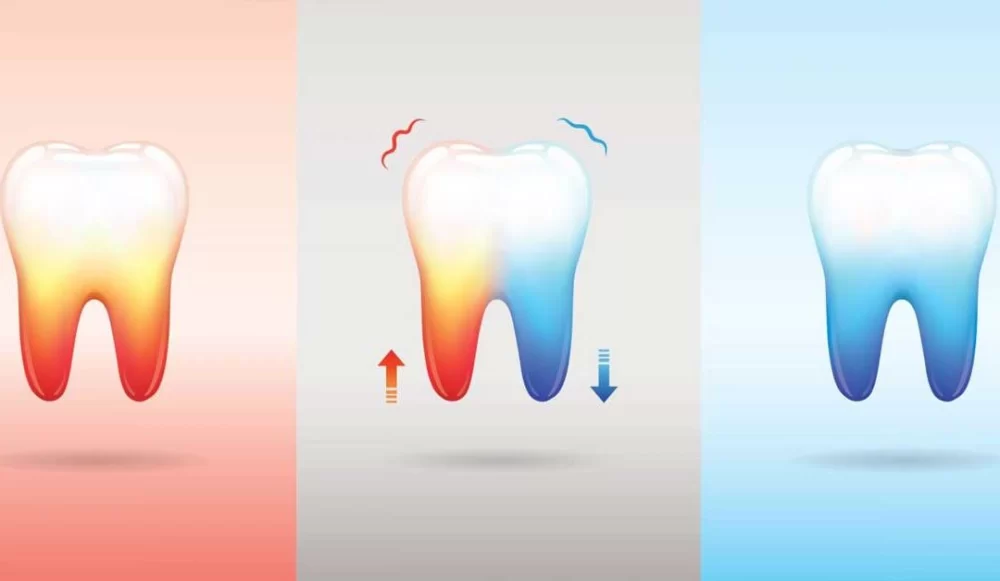
- Tooth-Sensitivity-Causes
- How-Tooth-Sensitivity-Affects-Daily-Life
- Treatment-Options-For-Tooth-Sensitivity
- Preventive-Measures-And-Lifestyle-Tips
- When-To-See-A-Dentist
1. Common Causes Behind Tooth Sensitivity
Tooth sensitivity, also known as dentin hypersensitivity, occurs when the underlying layer of the tooth—dentin—is exposed to external stimuli like cold, heat, or sweet foods. This exposure triggers a sharp, sudden pain that can disrupt daily routines. Understanding the root causes of tooth sensitivity is crucial for effective management.
One primary cause is enamel erosion, where the protective outer layer of the tooth wears away due to acidic foods, aggressive brushing, or grinding habits. Enamel loss leaves dentin vulnerable, exposing tiny tubules that connect to nerve endings.
Gum recession is another significant factor. As gums pull away from teeth, they reveal the sensitive roots that lack enamel protection, leading to discomfort. Gum disease, improper dental hygiene, or aging can contribute to this condition.
Other causes include cracked teeth, worn fillings, or dental procedures like whitening treatments. For example, many people experience temporary sensitivity after a professional whitening session, which typically subsides within a few days.
Reflecting on a real-life case, a patient named Sarah noticed sudden sensitivity after switching to a new whitening toothpaste. Upon visiting Dentistry Toothtruth, she learned the toothpaste contained harsh abrasives causing enamel wear, and with expert guidance, she found a gentler option that restored her comfort.
1.1 Enamel Erosion and Abrasion
The enamel is the hardest substance in the body, but it’s not invincible. Daily exposure to acidic foods like citrus fruits, soda, and even certain medications can gradually erode enamel. Abrasive brushing techniques or using hard-bristle toothbrushes accelerates this process. Once enamel thins, the dentin beneath becomes exposed, heightening sensitivity.
1.2 Gum Recession and Root Exposure
Healthy gums protect the tooth roots, but gum recession exposes this vulnerable area. Causes can include periodontal disease, aggressive flossing, or even genetic predisposition. When roots are exposed, they react strongly to temperature changes or tactile stimuli, resulting in sharp discomfort.
2. How Tooth Sensitivity Impacts Daily Life and Emotional Well-being
Tooth sensitivity is not just a physical nuisance; it can profoundly affect lifestyle choices and emotional health. Simple pleasures such as enjoying a cold drink, sipping hot coffee, or indulging in ice cream can become painful experiences. This often leads people to avoid certain foods or drinks, diminishing quality of life.
One patient, Mark, shared how his sensitivity forced him to quit his morning coffee ritual, impacting his mood and productivity. After exploring various treatments and finding help at Dentistry Toothtruth, he regained his enjoyment of everyday flavors without pain, illustrating how addressing sensitivity can improve emotional well-being.
2.1 Social and Psychological Effects
Persistent discomfort can cause frustration, anxiety, and even embarrassment, especially when speaking or smiling. People may become self-conscious, fearing that sensitivity signals poor dental health or unattractiveness. Understanding these emotional impacts is essential for comprehensive care.
2.2 Dietary Limitations and Nutritional Concerns
Avoiding cold or hot foods may lead to nutritional imbalances, especially if fruits, dairy, or beverages are restricted. Patients need guidance on maintaining a balanced diet while managing sensitivity effectively.
3. Exploring Effective Treatments for Lasting Relief
Addressing tooth sensitivity involves a combination of professional care and home-based strategies. Treatments vary depending on the cause and severity, but with the right approach, significant relief is achievable.
3.1 Desensitizing Toothpaste and Oral Care Products
Using specially formulated toothpaste containing potassium nitrate or stannous fluoride can help block pain signals and strengthen enamel over time. Regular use often reduces sensitivity within a few weeks.
3.2 Professional Dental Treatments
Dentists may apply fluoride varnishes or dental sealants to protect exposed dentin and promote remineralization. In some cases, bonding agents or resin restorations cover sensitive areas. For gum recession, surgical options like gum grafts can restore gum tissue and protect roots.
At Dentistry Toothtruth, patients benefit from personalized treatment plans based on thorough examinations, ensuring that interventions address individual needs precisely.
3.3 Lifestyle Modifications and Behavioral Changes
Simple changes such as switching to a soft-bristle toothbrush, avoiding acidic foods and beverages, and using a mouthguard to prevent grinding at night can significantly reduce sensitivity triggers.
4. Preventive Strategies and Lifestyle Tips to Protect Your Teeth
Prevention is always better than cure. Protecting your enamel and gums can prevent tooth sensitivity from developing or worsening.
4.1 Optimal Oral Hygiene Practices
Brush twice daily with gentle strokes and fluoride toothpaste, floss carefully, and rinse with alcohol-free mouthwash to maintain healthy gums and teeth without causing damage.
4.2 Dietary Recommendations
Limit intake of sugary and acidic foods. When consuming acidic drinks like citrus juice or soda, drink through a straw to minimize contact with teeth, and rinse with water afterward.
4.3 Regular Dental Check-Ups
Routine visits to the dentist can catch early signs of enamel wear or gum disease. Early intervention helps prevent sensitivity from escalating.
5. Recognizing When Professional Help Is Necessary
While mild sensitivity can often be managed at home, persistent or severe tooth pain requires prompt dental evaluation. If sensitivity is accompanied by swelling, severe pain, or bleeding gums, it may indicate underlying conditions such as cavities or infections.
For individuals unsure about the cause of their sensitivity, consulting experts at Dentistry Toothtruth provides access to diagnostic tools and tailored treatments that restore comfort and dental health effectively.







 Dr. Marvin R. Winter, DDS5.0 (9 review)
Dr. Marvin R. Winter, DDS5.0 (9 review) Pearl Family Dental Care4.0 (123 review)
Pearl Family Dental Care4.0 (123 review) Dentistry for Children of Jackson4.0 (545 review)
Dentistry for Children of Jackson4.0 (545 review) Dentist Pasadena - Walnut Hill Dental - Cosmetic Dentist Pasadena CA4.0 (61 review)
Dentist Pasadena - Walnut Hill Dental - Cosmetic Dentist Pasadena CA4.0 (61 review) Reichheld Ting Orthodontics - Westford5.0 (308 review)
Reichheld Ting Orthodontics - Westford5.0 (308 review) Parkside Dental & Implant Center4.0 (80 review)
Parkside Dental & Implant Center4.0 (80 review) The Importance of Oral Health Education During Pregnancy for a Healthy Pregnancy
The Importance of Oral Health Education During Pregnancy for a Healthy Pregnancy Best Tips for Brushing Your Teeth Properly for Healthy Gums: Essential Techniques for Oral Health
Best Tips for Brushing Your Teeth Properly for Healthy Gums: Essential Techniques for Oral Health Why Skipping Dental Checkups Can Lead to Bigger Oral Health Problems
Why Skipping Dental Checkups Can Lead to Bigger Oral Health Problems Advantages of Porcelain Dental Restorations
Advantages of Porcelain Dental Restorations How Can Diabetes Cause Tooth and Gum Problems? Preventing and Managing Oral Health Issues
How Can Diabetes Cause Tooth and Gum Problems? Preventing and Managing Oral Health Issues Healthy Habits for Promoting Good Oral Health and Hygiene: Tips for a Healthy Smile
Healthy Habits for Promoting Good Oral Health and Hygiene: Tips for a Healthy Smile